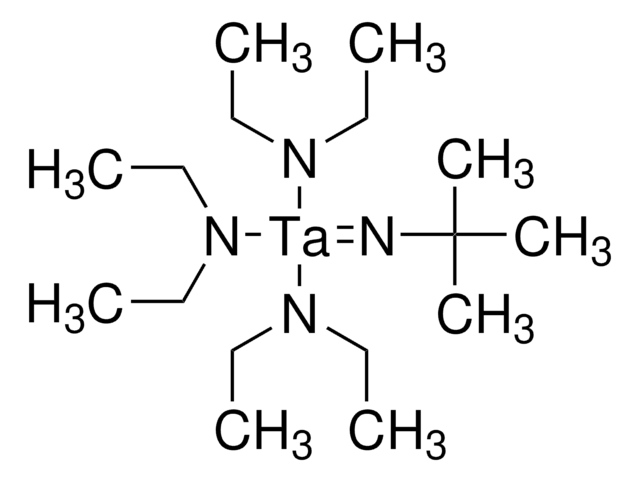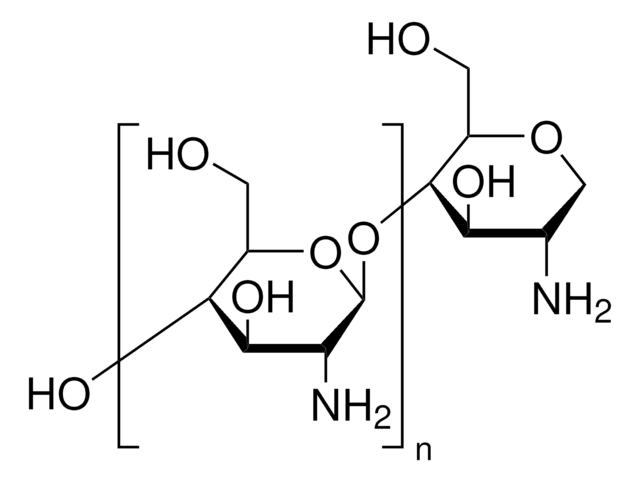760404
Tantalum(V) ethoxide
packaged for use in deposition systems
Synonyme(s) :
PET, Pentaethoxytantalum, Pentaethyl tantalate, Tantalum pentaethoxide
About This Item
Produits recommandés
Forme
liquid
Indice de réfraction
n20/D 1.487 (lit.)
pb
155 °C/0.01 mmHg (lit.)
Pf
21 °C (lit.)
Densité
1.566 g/mL at 25 °C (lit.)
Chaîne SMILES
CCO[Ta](OCC)(OCC)(OCC)OCC
InChI
1S/5C2H5O.Ta/c5*1-2-3;/h5*2H2,1H3;/q5*-1;+5
Clé InChI
HSXKFDGTKKAEHL-UHFFFAOYSA-N
Vous recherchez des produits similaires ? Visite Guide de comparaison des produits
Application
Mention d'avertissement
Warning
Mentions de danger
Conseils de prudence
Classification des risques
Flam. Liq. 3
Code de la classe de stockage
3 - Flammable liquids
Classe de danger pour l'eau (WGK)
WGK 1
Point d'éclair (°F)
84.2 °F - closed cup
Point d'éclair (°C)
29 °C - closed cup
Faites votre choix parmi les versions les plus récentes :
Certificats d'analyse (COA)
Vous ne trouvez pas la bonne version ?
Si vous avez besoin d'une version particulière, vous pouvez rechercher un certificat spécifique par le numéro de lot.
Déjà en possession de ce produit ?
Retrouvez la documentation relative aux produits que vous avez récemment achetés dans la Bibliothèque de documents.
Les clients ont également consulté
Notre équipe de scientifiques dispose d'une expérience dans tous les secteurs de la recherche, notamment en sciences de la vie, science des matériaux, synthèse chimique, chromatographie, analyse et dans de nombreux autres domaines..
Contacter notre Service technique










